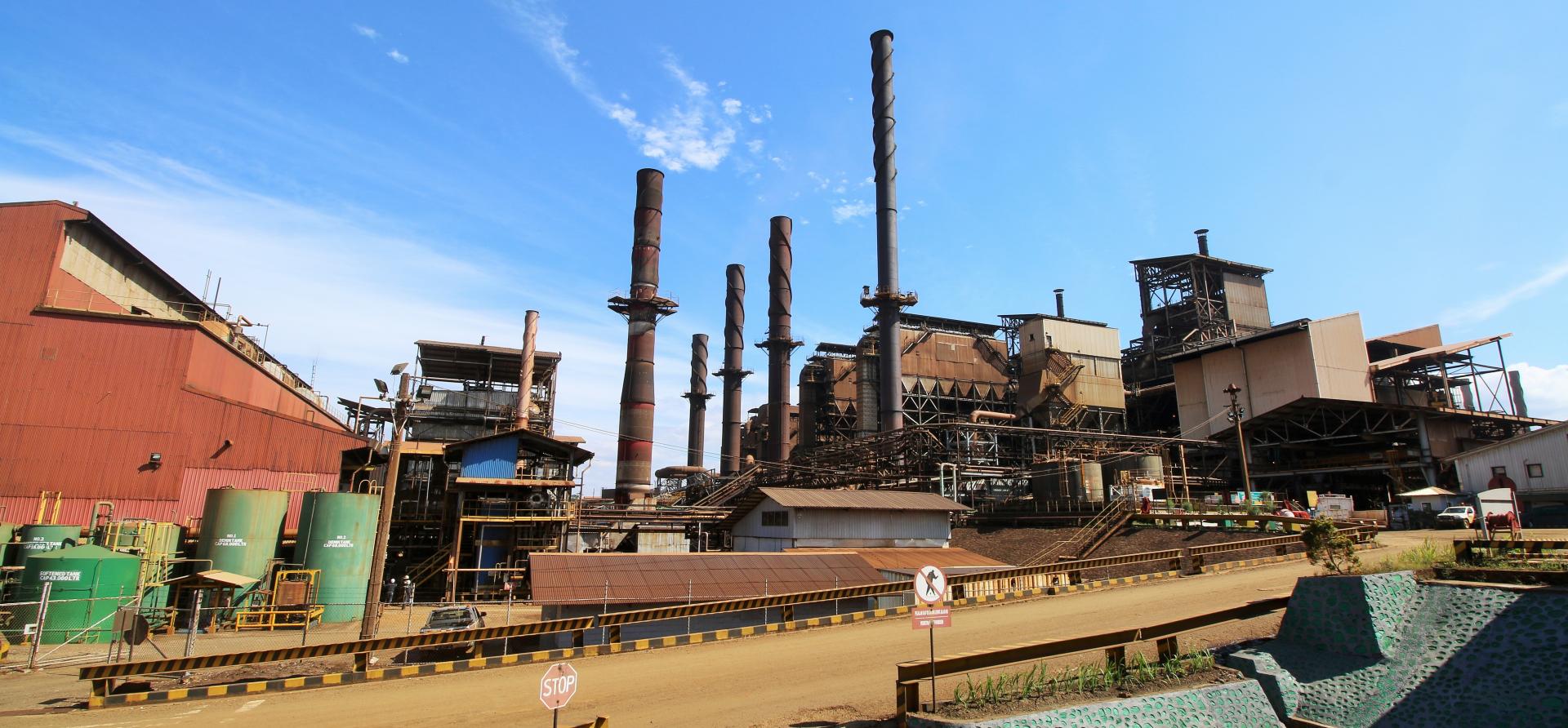Indonesia’s path to global EV dominance starts with green smelting

Key Findings
Indonesia’s dream to lead the global electric vehicle battery industry depends on its ability to accelerate its transition to renewable energy.
Indonesia should start using renewable energy sources for smelter operations due to increasing attention from financial stakeholders, such as banks and metal traders, and the international community who are demanding low-carbon solutions.
Reducing carbon intensity in both the production process and final products for aluminum and batteries is crucial.
In May 2024, Indonesian Minister for Investment Affairs Luhut Pandjaitan argued that a free trade agreement with the United States (US) for Indonesian refined nickel exports, even if produced by coal-fired smelters, could benefit US manufacturers. Minister Pandjaitan emphasized that US senators’ objections overlook the importance of environmental trade-offs in the green transition, as nickel is essential for the batteries that will power it.
He attributed the competitiveness of Indonesian nickel to the country’s coal abundance, noting that “renewables have yet to offer a cost-effective option to power smelters in Indonesia.”
Indonesia's ambition to become a leading electrical vehicle (EV) battery producer is commendable. However, it is important to consider the carbon intensity and environmental impact of coal-fired electricity generation, which could threaten Indonesia's EV aspirations.
For the past few years, the Institute for Energy Economics and Financial Analysis (IEEFA) noted several evidence that banks, metal traders, and insurers are against coal-powered smelting. Given that other countries have already made similar commitments, Indonesia should start using renewable energy sources for smelter operations.
Mounting pressure against coal-fired smelting
Overwhelming evidence worldwide, including studies led by the International Energy Agency, demonstrates that energy from solar and wind sources is the cheapest marginal cost solution. However, Indonesia lags behind, having one of the lowest installed solar capacities globally.
In the coming year, financial regulators worldwide will demand emission disclosures from businesses, including those from the inputs to their products. Rating agencies also signal that they will begin factoring climate impacts into their corporate risk calculations. With these developments, the carbon intensity of Indonesia’s aluminum and nickel smelting operations will be impossible for buyers to ignore.
The issue has already affected Adaro’s three-phase aluminum smelter project in Indonesia. In February 2023, Standard Chartered and DBS Bank reportedly declined to finance the project. In April 2024, Reuters reported that Hyundai Motors ended an aluminum purchase agreement with Adaro due to pressure.
The company has since updated the plan; Phase 2 of the aluminum smelter will be run by a hybrid of coal and renewables.
Proven feasibility for renewables-powered smelting
Growing evidence supports the technological feasibility of using renewable energy in nickel smelting.
Melbourne-headquartered mining company, BHP Group, has entered into renewable power agreements on solar and wind farms for its Nickel West operations in Western Australia, which produces 80,000 kilotonnes of nickel each year. This includes the Merredin Solar Farm, Australia’s largest solar farm.
Sydney-headquartered nickel producer, Nickel Industries, has collaborated with Indonesian renewable company SESNA to provide solar power to its mining and processing operations in Morowali, Central Sulawesi. The company started with an initial solar capacity of 396 kilowatt-peak (kWp) and plans to develop up to 200 megawatt-peak (MWp) solar capacity with 20 megawatt-hours (MWh) of battery storage as a solution to the intermittent power challenge.
Contrary to popular belief, a large battery capacity is not always needed to support a solar plant. The project demonstrates the feasibility of alternatives to captive coal power plants for nickel smelting in Indonesia, even with small steps.
Whether driven by regulatory demands or consumer expectations, the need for lower carbon intensity in both the production process and final products for aluminum and batteries is clear.
Renewables-powered smelting can help mining companies meet net-zero targets, unlock energy financing, enhance stakeholder acceptance, and encourage customer purchases. Renewables can also reduce vulnerability to price volatility and supply disruptions.
Indonesia’s dream to lead the global EV battery industry depends on its ability to accelerate its transition to renewable energy.
















